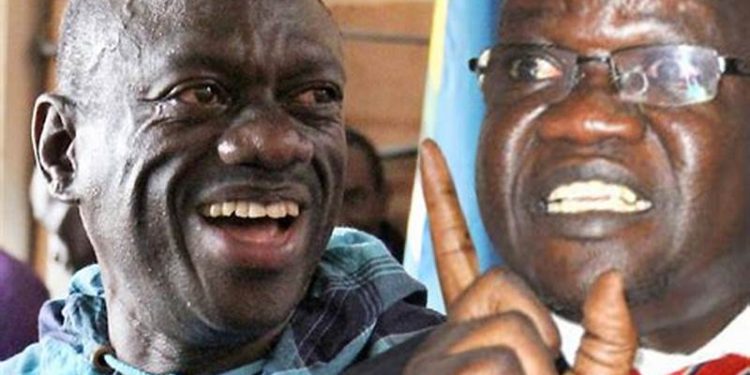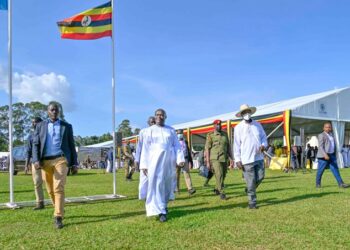Uganda’s political scene is once again marred by betrayal and shameless self-interest as the Forum for Democratic Change (FDC) Katonga faction contemplates forming a new political party. This pathetic political stunt, set for decision at the delegates’ conference on August 2, 2024, is a revolting display of opportunism and abandonment of principles. Harold Kaija, the secretary general of this faction, has the audacity to claim widespread support for a new party, citing feedback from Mbale and other regions. But let’s not be duped by this charade of democracy and consultation.
The Katonga faction’s breakaway from the original FDC is a sordid tale of internal conflicts and accusations of secretly backing the ruling National Resistance Movement (NRM) party. This split highlights the utter collapse of Uganda’s opposition politics into a mire of personal ambitions and deceitful backroom deals. What was once a unified stand against President Museveni’s despotic regime has now disintegrated into fragmented factions more obsessed with power grabs than genuine democratic reform.
Harold Kaija’s proclamation that “the majority of our members support the formation of a new party” is pure political drivel. It’s a feeble attempt to legitimize their treachery under the pretense of popular support. The faction’s so-called countrywide consultations, spanning districts like Busia, Wakiso, Ankole Kigezi, and others, are nothing but a sham. These meetings are staged to create an illusion of grassroots democracy while the real decisions are undoubtedly made in the murky corridors of Kampala’s political elite.
The notion that the Katonga faction’s split from the FDC could lead to any meaningful change is laughable. If anything, it signifies a further erosion of trust within the opposition and a weakening of the collective effort required to challenge Museveni’s entrenched dictatorship. The Najjanankumbi faction, led by Patrick Amuriat and Nathan Nandala Mafabi, is no better, plagued by its own controversies and internal strife. However, at least they haven’t jumped ship to form yet another redundant political entity.
John Kikonyogo, the spokesperson for the Najjanankumbi faction, rightfully urges Dr. Kizza Besigye to prevent these consultations from destroying the FDC. Yet, his plea is likely falling on deaf ears. Besigye, a perennial presidential candidate, seems incapable of controlling the factionalism within his own ranks. His silence or acquiescence in this matter could be interpreted as complicity or impotence—neither of which bodes well for the future of Uganda’s opposition.
The delegates’ conference is supposed to decide whether to form a new political party, reconcile with the Najjanankumbi group, or align with another faction. But let’s cut through the nonsense: the outcome is preordained. The Katonga faction is hell-bent on carving out its own niche, regardless of the broader implications for Uganda’s democracy. This is not about ideological differences or strategic realignment; it’s about ego and the insatiable lust for power.
Furthermore, the timing of this potential split couldn’t be worse. Uganda is at a critical juncture, with the populace growing increasingly disillusioned with Museveni’s decades-long rule. Instead of uniting to capitalize on this discontent, the opposition is splintering, handing the NRM yet another advantage. The formation of a new party by the Katonga faction will only serve to dilute the opposition vote and sow further confusion among voters.
The integrity of these so-called consultations is highly questionable. In a country where political meetings are often stage-managed and dissent is stifled, can we genuinely believe that the feedback from regions like Mbale and Lira is authentic? Or is it simply a reflection of the faction’s desire to legitimize their betrayal through manipulated support?
The fate of the FDC Katonga faction, and indeed Uganda’s opposition, hangs in the balance. But let’s be clear: this balance is tipped heavily towards self-interest and away from genuine democratic reform. The delegates’ conference on August 2 will be less about the will of the people and more about the machinations of a few power-hungry individuals.
Ultimately, the Katonga faction’s push for a new political party is a damning indictment of Uganda’s opposition politics. It exposes the rot at the heart of what should be a united front against dictatorship. Instead, we see a fractious, self-serving clique more interested in personal gain than in the collective good. As the delegates’ conference approaches, one can only watch in dismay as yet another chapter of betrayal and political folly unfolds.







Discussion about this post